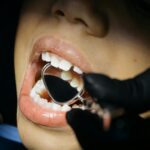
In this article
Garlic and a lax teeth-brushing routine aren’t the only culprits behind bad breath. Halitosis, or bad breath, occurs when bacteria in your mouth break down food particles, releasing smelly compounds. This can be influenced by various factors, including diet, smoking, or certain health conditions like heartburn and high blood sugar. Let’s explore the possible reasons for halitosis and how you can manage it.
1. Dental Appliances
Orthodontic appliances like dentures and fixed bridges require meticulous care. According to John Grbic, DMD, a dentist at Columbia Doctors in New York City, these appliances can trap food particles, leading to bad breath. Daily cleaning is essential to prevent bacteria buildup and maintain fresh breath.
2. Eating and Drinking Patterns
Your eating and drinking habits can significantly impact your breath.
Drinking Alcohol
Alcohol can linger on your breath long after consumption. Research shows a strong link between frequent alcohol intake and halitosis due to increased dry mouth, higher levels of sulfur compounds, periodontal disease, and the direct smell of alcohol.
Eating Smelly Foods
Certain foods like garlic, onions, and spices can leave a lingering odor. These scents may resurface hours later, even causing bad breath through digestive processes. As Dr. Grbic explains, chemicals from digested food enter the bloodstream and are eventually exhaled.
Following a Ketogenic Diet
The ketogenic (keto) diet, a low-carb, high-fat regimen, can cause “keto breath.” This distinctive smell occurs because the liver converts acetone to isopropanol during ketosis. Keto breath often smells like acetone or can have a fruity scent.
Skipping Meals
Skipping meals can lead to bad breath because saliva production decreases when you’re not eating. Saliva helps cleanse the mouth, and less saliva means more bacteria growth, contributing to bad breath.
3. Halitophobia
Halitophobia is the irrational belief that one has bad breath, affecting up to 1% of the population. This phobia can be debilitating, leading to persistent anxiety despite reassurance from a dentist. If you suspect you have halitophobia, seeking psychological help is crucial.
4. Health Conditions
Several health conditions can cause bad breath.
Heartburn
Gastroesophageal reflux disease (GERD) can cause bad breath by allowing stomach contents to leak into the esophagus. Studies show a high prevalence of GERD in patients with tooth erosion, where refluxed acids damage teeth and contribute to bad breath.
High Blood Sugar
A sweet, sugary scent on your breath may indicate diabetic ketoacidosis, a life-threatening condition in people with diabetes. Other symptoms include frequent urination, nausea, and muscle stiffness. Immediate medical attention is necessary.
Sjogren’s Syndrome
Sjogren’s syndrome (SS), an autoimmune disorder, often causes dry mouth, leading to bad breath. Middle-aged women and those with other autoimmune diseases are particularly susceptible.
5. Hygiene Problems
Maintaining good oral hygiene is vital in preventing bad breath.
Cavities
Plaque buildup can erode teeth, leading to cavities. Food particles can get trapped in these cavities, causing persistent bad breath.
Gum Disease
Periodontal disease, or gum disease, is a major cause of bad breath. Infections and inflammation of the gums can produce a foul odor. Acute necrotizing ulcerative gingivitis (ANUG), a severe form of gum disease, is particularly associated with a strong, fetid smell.
6. Illness-Related Factors
Certain illnesses can result in bad breath.
Postnasal Drip
Mucus from postnasal drip can accumulate in the back of your throat, eventually traveling to your mouth and causing bad breath.
Strep Throat
Strep throat, a bacterial infection, can produce bad breath. Sinus infections can also lead to bacterial growth and smelly mucus.
7. Medications
Many medications can cause bad breath. A study identified various drugs associated with extra-oral halitosis, including acid reducers, antidepressants, and antihistamines. If you’re taking any of these, be aware of the potential for bad breath.
8. Morning Breath
Morning breath is a common phenomenon due to decreased saliva production during sleep. Bacteria multiply overnight, causing bad breath until you brush your teeth.
9. Mouth Breathing
Mouth breathing, whether during sleep or exercise, can dry out your mouth and lead to bad breath. Saliva helps clean the mouth, and less saliva means more bacteria buildup.
How to Prevent Bad Breath
Here are some tips to keep bad breath at bay:
- Avoid alcoholic beverages, bad breath-causing foods, and tobacco products.
- Chew sugar-free gum to stimulate saliva production.
- Clean dentures, retainers, and mouthguards regularly.
- Eat more fruits and vegetables and reduce meat consumption.
- Maintain good oral hygiene by brushing twice daily and flossing once daily.
- Make regular dental visits.
- Use over-the-counter mouthwashes to freshen your breath.
By understanding the various causes of halitosis and adopting good oral hygiene practices, you can manage and prevent bad breath effectively
A Quick Review
Bad breath, or halitosis, can stem from poor oral hygiene, specific foods, health conditions, or habits like smoking. Understanding the causes and practicing good oral hygiene can help manage and prevent bad breath effectively
FAQS
What is halitosis?
Halitosis is the medical term for chronic bad breath, which is often caused by bacteria in the mouth breaking down food particles.
Can certain foods cause bad breath?
Yes, foods like garlic, onions, and spices can cause bad breath, as can beverages like alcohol.
How can I prevent bad breath?
Maintaining good oral hygiene, avoiding certain foods and drinks, and staying hydrated can help prevent bad breath.
Can health conditions cause bad breath?
Yes, conditions like GERD, diabetes, and Sjogren’s syndrome can contribute to bad breath.
What is keto breath?
Keto breath is a specific type of bad breath caused by the ketogenic diet, characterized by a fruity or acetone-like smell.












